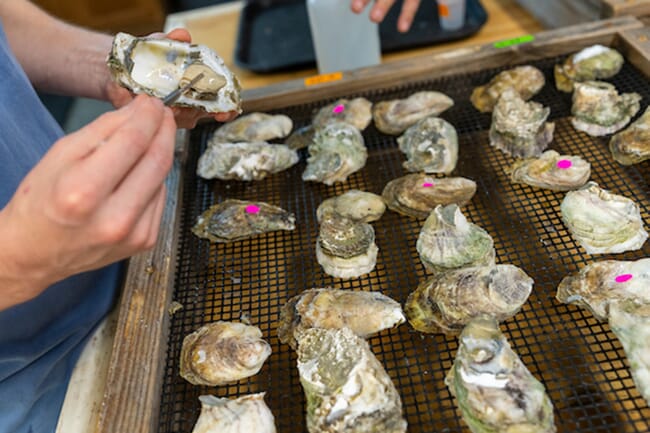
© Michael Miller, Texas A&M AgriLife
“Our mission is to position Texas as a leader in sustainable marine food production, demonstrating how aquaculture can simultaneously drive economic growth, deliver ecological benefits and prepare the next generation to uphold a thriving sector,” said Juan Landivar-Bowles, director of the Texas A&M AgriLife Research and Extension Center at Corpus Christi, in a press release.
Approved in August by the university board, the centre will focus on four key areas:
- Breeding and genetics of aquaculture species.
- Economically and environmentally sustainable production systems.
- Ecosystem conservation and restoration.
- Advancement of agriculture along the state’s coast.
“The centre will leverage the unique potential of the Texas coastline to expand production while ensuring environmentally responsible food systems,” said Dr Ahmed Mahdy, executive vice-president for research and innovation at Texas A&M-Corpus Christi.
The idea for a marine aquaculture centre at Corpus Christi followed legislation that paved the way for oyster production in Texas. The new centre aims to promote growth across aquaculture industries by diversifying species and markets, supporting the commercialisation of new technologies and creating long-term employment opportunities.
To prepare the next generation of aquaculture professionals, the centre will offer hands-on training in fisheries, mariculture and marine biology while building industry partnerships.
In its first two years, the centre aims to recruit top scientists and technical experts in its four key areas of focus. It will secure additional funding and develop sustainable revenue from improved seed and germplasm to support operations and research.
“By fostering innovation in marine aquaculture, the centre will create new opportunities for sustainable food production and job growth, and it will contribute to the long-term health and resilience of our coastal environments,” Landivar-Bowles said. “This dual impact is what will make our initiative truly transformative.”




